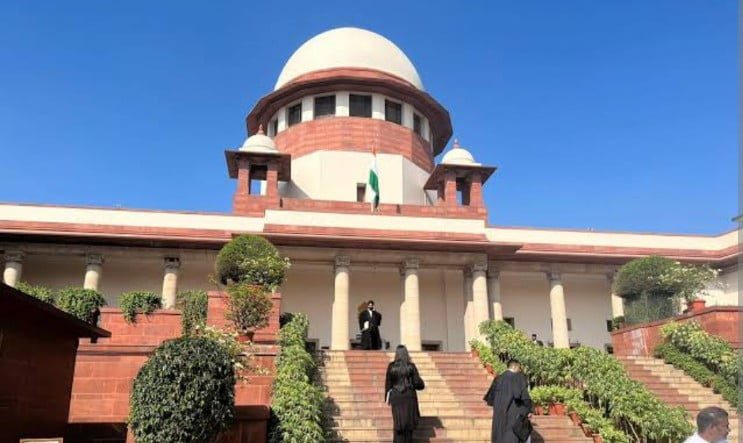Supreme Court’s Directive on Shambhu Border
On July 24, 2024, the Supreme Court of India issued a pivotal directive to the governments of Haryana and Punjab, instructing them to maintain the current status quo at the Shambhu border. This decision stems from a broader context of escalating tensions and a significant trust deficit between the farmer community and the authorities. The directive underscores the urgent need for a neutral mediator to facilitate resolution and restore confidence among the aggrieved parties.
The Supreme Court’s intervention came in response to a plea from the Haryana government, which sought to challenge a prior High Court order mandating the removal of barricades erected at the Shambhu border. This border has become a focal point of ongoing protests, with farmers camping there since February 13, 2024. The High Court’s decision to remove these barricades was aimed at alleviating the blockade that has been a source of significant disruption.
Trust Deficit and the Need for a Neutral Mediator
The three-judge Bench, led by Justice Surya Kant, highlighted the critical issue of a trust deficit between the farmers and the government. Justice Kant, along with Justices Dipankar Datta and Ujjal Bhuyan, emphasized that resolving this trust deficit is crucial for achieving a meaningful dialogue and addressing the farmers’ concerns effectively.
In their remarks, the Bench noted the necessity of appointing a “neutral umpire” or independent committee. This committee would be tasked with engaging with the protesting farmers and exploring potential solutions to their demands. The Supreme Court’s emphasis on an impartial mediator reflects a broader recognition of the complex dynamics at play and the need for a balanced approach to conflict resolution.
The Bench’s statement underscored that despite the best efforts of government ministers, the entrenched distrust persists. The Court highlighted the importance of proactive steps to bridge this gap, suggesting that the presence of a neutral party could inspire greater confidence and facilitate constructive dialogue.
Implications of the Supreme Court’s Order
The Supreme Court’s directive to maintain the status quo at the Shambhu border is a strategic move aimed at preventing further escalation of the situation. By ordering both Haryana and Punjab to refrain from making any unilateral changes, the Court seeks to stabilize the immediate environment and provide a conducive atmosphere for negotiations.
The order also has broader implications for the ongoing farmers’ protests, which have captured national attention. The Court’s intervention signifies a critical juncture in the dispute, highlighting the judiciary’s role in mediating complex socio-political conflicts. The establishment of an independent committee, as proposed, is anticipated to play a pivotal role in addressing the root causes of the unrest and facilitating a resolution that aligns with the interests of all stakeholders.
Summary
The Supreme Court’s recent directive to maintain the status quo at the Shambhu border reflects a significant judicial intervention in the ongoing farmers’ protests. By emphasizing the need for a neutral mediator and addressing the trust deficit between the farmers and the government, the Court aims to pave the way for constructive dialogue and resolution. The decision underscores the judiciary’s role in managing complex conflicts and providing a framework for addressing critical socio-political issues.
Key Learning Points
| Point | Details |
|---|---|
| Supreme Court Directive | The Court has directed Haryana and Punjab to maintain the current status at the Shambhu border. |
| Trust Deficit | The Court highlighted the significant trust deficit between the farmers and the government. |
| Need for Neutral Mediator | An independent committee is proposed to facilitate dialogue and address the farmers’ concerns. |
| Implications of Order | The directive aims to stabilize the situation and provide a conducive environment for negotiations. |
Soumya Smruti Sahoo is a seasoned journalist with extensive experience in both international and Indian news writing. With a sharp analytical mind and a dedication to uncovering the truth, Soumya has built a reputation for delivering in-depth, well-researched articles that provide readers with a clear understanding of complex global and domestic issues. Her work reflects a deep commitment to journalistic integrity, making her a trusted source for accurate and insightful news coverage.



